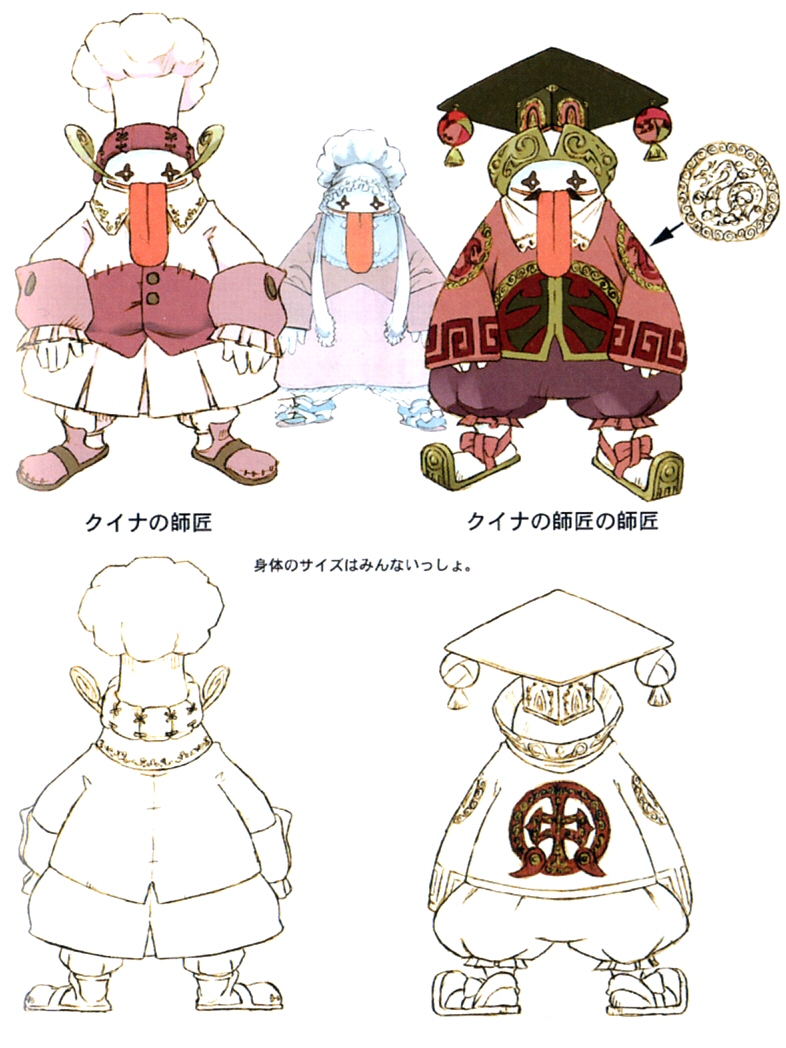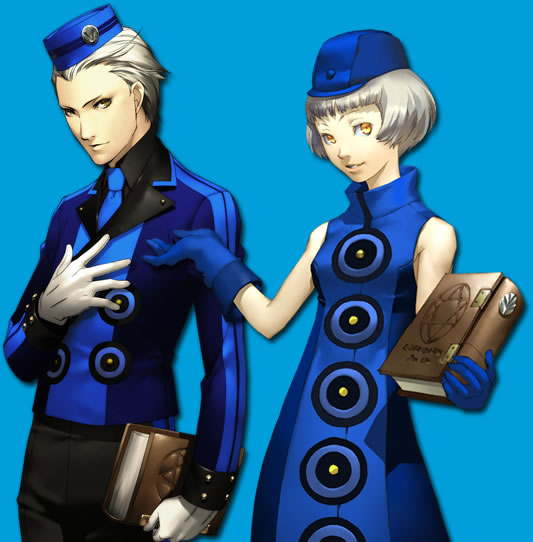Article from eZine Issue 19 to spur a conversation: viewtopic.php?f=202&t=78211
A friend remarked that they wanted to create a world for a game in which women are oppressed, a world of witch hunts and a patriarchal society, in order to have the main character, a girl, build her character in this harsh environment. The aim would be to show the struggles women face, and that you can still be strong in a world like this.
Which is alright. It's their game.
It led me to have the opposite thought, however. What about a world in which gender was completely not an issue, to such an extent that it would not matter what gender the main character (or any other character) was. Love, trial and punishment, opportunity, leadership - all of it would be available to anybody. In essence it wouldn't be a gender equal game because there would be no genders to equalise: it would be a gender-free game.
To a large extent I have tried to implement this in Afar, to varying success. Due to some confusion about the English language some dialogues end up muddled but for the most part it's quite easy to remove any mention of gender from the screenplay. As an MMORPG one of the first options available to a player is gender: male or female decides so much in games such as Guild Wars or RuneScape: your entire wardrobe is decided by what option you chose that early on and quests and other events are based around this.
By not having this option a lot more freedom is given to the player. Should they want to wear a dress or a top hat they can do, regardless of their gender.
Graphics
Faces are available to everybody. Some are androgynous. Others are, at first glance, genderised - beards, long hair, make-up - until you realise these are themselves not actually gendered traits if they don't need to be. Anybody can have a beard, anybody can have long hair. Leave that decision up to the player and not on whether they chose male or female and suddenly there is a lot more variety available in the game.
Word Choices
It's a complete misunderstanding that the English language has no gender-neutral words. This is pushed by people such as Richard Dawkins who think that they must use He or She when referring to anonymous people whose gender is unknown, but they're, in short wrong.
The gender neutral words "they", "their", "them" are and always have been perfectly acceptable;
it is a modern idea that only He or She are usable in official contexts. There is no immediate need for often mocked gender-neutral pronouns such as Xe or Schklee.
The problem with these pronouns is they're not just singular: "they" can mean one person or it can mean a group. However, to say it cannot be used as a singular because it's ambiguous is hypocritical when deciding it's acceptable as a group (despite still being ambiguous in the same way).
Throughout Afar I replaced any mention of He or She with They. It can be a little jarring especially to people to whom English is not their first language, but it is grammatically correct.
Use in real games
Angroginuity has often been central to Japanese games and J-RPGs, if only in the design of characters and the clothing worn.
"What if Link was a girl?" is often asked, but what if Link was neither? What if we were never told - would it be a problem? For the most part the games would play exactly the same, it would just need a few word choices changing.
Some games do go as far as not telling you the gender altogether however.
The best example is Leo Kliesen, a playable character in Tekken 6 and other games in the series. Leo is referred to by name alone or gender-neutral pronouns and has no costumes that reveal the torso, unlike other female characters, and is able to select female hair options, attacked by Anna's Slap Happy attack (only available against male characters), can equip male only items such as sledgehammers, and can be customised in Tekken Tag Tournament 2 to look like female Sora from Kingdom Hearts or the male Indiana Jones.
The development team stated they wanted to develop a character who would be loved by fans regardless of their gender and so purposefully made them gender ambiguous.
While they go a large way to make this happen they fall short of actually gender neutralising the game. Why are sledgehammers male-only weapons? Why do characters have attacks that can only be used against certain genders?
Can it be done?
In conclusion, gender-free games are certainly possible. There are many ways to do it and creating a society within a game that does not bias based on gender is easy. Simply neglecting to ask the player their gender is even easier, and completely unnecessary if you have customisation options. (Why not let every player choose every possible combination? Don't limit yourself!)
Should it be done?
I am by no means saying this is the future of gaming. If your game doesn't suit it, don't employ it. But it can be done and in the context of MMORPGs is a logical future move.
More and more gender is becoming less of an issue in our society. Maybe our games will come to reflect this, or maybe games will be used, as in my original tangent, as a way of portraying worlds where gender is an issue, as a warning or simply as a plot device. We can enjoy World War II films despite not agreeing with the things going on.
A friend remarked that they wanted to create a world for a game in which women are oppressed, a world of witch hunts and a patriarchal society, in order to have the main character, a girl, build her character in this harsh environment. The aim would be to show the struggles women face, and that you can still be strong in a world like this.
Which is alright. It's their game.
It led me to have the opposite thought, however. What about a world in which gender was completely not an issue, to such an extent that it would not matter what gender the main character (or any other character) was. Love, trial and punishment, opportunity, leadership - all of it would be available to anybody. In essence it wouldn't be a gender equal game because there would be no genders to equalise: it would be a gender-free game.
To a large extent I have tried to implement this in Afar, to varying success. Due to some confusion about the English language some dialogues end up muddled but for the most part it's quite easy to remove any mention of gender from the screenplay. As an MMORPG one of the first options available to a player is gender: male or female decides so much in games such as Guild Wars or RuneScape: your entire wardrobe is decided by what option you chose that early on and quests and other events are based around this.
By not having this option a lot more freedom is given to the player. Should they want to wear a dress or a top hat they can do, regardless of their gender.
Graphics
Faces are available to everybody. Some are androgynous. Others are, at first glance, genderised - beards, long hair, make-up - until you realise these are themselves not actually gendered traits if they don't need to be. Anybody can have a beard, anybody can have long hair. Leave that decision up to the player and not on whether they chose male or female and suddenly there is a lot more variety available in the game.
Word Choices
It's a complete misunderstanding that the English language has no gender-neutral words. This is pushed by people such as Richard Dawkins who think that they must use He or She when referring to anonymous people whose gender is unknown, but they're, in short wrong.
The gender neutral words "they", "their", "them" are and always have been perfectly acceptable;
it is a modern idea that only He or She are usable in official contexts. There is no immediate need for often mocked gender-neutral pronouns such as Xe or Schklee.
The problem with these pronouns is they're not just singular: "they" can mean one person or it can mean a group. However, to say it cannot be used as a singular because it's ambiguous is hypocritical when deciding it's acceptable as a group (despite still being ambiguous in the same way).
Throughout Afar I replaced any mention of He or She with They. It can be a little jarring especially to people to whom English is not their first language, but it is grammatically correct.
Use in real games
Angroginuity has often been central to Japanese games and J-RPGs, if only in the design of characters and the clothing worn.
"What if Link was a girl?" is often asked, but what if Link was neither? What if we were never told - would it be a problem? For the most part the games would play exactly the same, it would just need a few word choices changing.
Some games do go as far as not telling you the gender altogether however.
The best example is Leo Kliesen, a playable character in Tekken 6 and other games in the series. Leo is referred to by name alone or gender-neutral pronouns and has no costumes that reveal the torso, unlike other female characters, and is able to select female hair options, attacked by Anna's Slap Happy attack (only available against male characters), can equip male only items such as sledgehammers, and can be customised in Tekken Tag Tournament 2 to look like female Sora from Kingdom Hearts or the male Indiana Jones.
The development team stated they wanted to develop a character who would be loved by fans regardless of their gender and so purposefully made them gender ambiguous.
While they go a large way to make this happen they fall short of actually gender neutralising the game. Why are sledgehammers male-only weapons? Why do characters have attacks that can only be used against certain genders?
Can it be done?
In conclusion, gender-free games are certainly possible. There are many ways to do it and creating a society within a game that does not bias based on gender is easy. Simply neglecting to ask the player their gender is even easier, and completely unnecessary if you have customisation options. (Why not let every player choose every possible combination? Don't limit yourself!)
Should it be done?
I am by no means saying this is the future of gaming. If your game doesn't suit it, don't employ it. But it can be done and in the context of MMORPGs is a logical future move.
More and more gender is becoming less of an issue in our society. Maybe our games will come to reflect this, or maybe games will be used, as in my original tangent, as a way of portraying worlds where gender is an issue, as a warning or simply as a plot device. We can enjoy World War II films despite not agreeing with the things going on.






